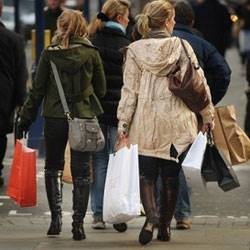
The JAA is seeking government action to reduce the tax-free threshold from $1000 to $200, a step that it hopes will encourage consumers to buy more from domestic jewellery retailers
JAA seeks government action to assist jewellers
Posted May 31, 2011 | By Sonia Nair
The Jewellers Association of Australia (JAA) has lodged a submission with the Productivity Commission to seek action from the Government on issues that it feels are hindering the jewellery industry.
The trade body is urging the Government to look at issues including the tax-free threshold on imported goods and the unfair advantage it believes landlords have when it comes to lease renewal negotiations.
Following the uproar that ensued last year about overseas online sales impinging on domestic retail sales, the Government asked the Productivity Commission to undertake an inquiry into the current Australian retail climate in early February this year.
The commission published a paper entitled ‘Economic structure and performance of the Australian retail industry’ to canvas opinions on the broader issues contributing to the increase in online purchasing by Australian consumers as well as other policies that impact the retail sector.
The JAA, alongside disparate quarters of the industry and individuals, has lodged a detailed submission making specific requests – one of which surrounds the furore of lowering the $1,000 tax-free threshold for imported goods to $200.
JAA chief executive Ian Hadassin said the issue was a pressing one for the jewellery industry because the average price of jewellery sold in Australia is around $200.
“By value and volume, anything below $1,000 makes up the majority of jewellery sales. It is an issue that could affect a lot of jewellery stores if the threshold is not lowered,” Hadassin said.
According to the JAA, the current situation with lease renewal negotiations is another worry for jewellers as shopping centre landlords hold sway when it comes to renegotiating rental costs after an average five-year lease contract ends.
Hadassin said jewellers who have built an established customer base are often left in a tight spot when landlords decide to raise rental costs, with many of them consenting to the increases.
“If after five years the landlord comes up with a substantial increase, it’s like a David and Goliath contest. Landlords have stronger negotiating skills compared to jewellers and they have intimate knowledge of what everyone in the centre is paying,” Hadassin explained.
The JAA has urged the Government to put legislation in place that will regulate the relationship between landlords and jewellers.
“There needs to be a balance where rental increases must be reasonable and not what landlords think they can get away with,” Hadassin said.
The JAA has also requested that the Australian Bureau of Statistics (ABS) start compiling and publishing sales data specific to the jewellery industry once again.
The ABS stopped compiling sales data for the jewellery industry in 2008 due to “budgetary constraints”, but Hadassin said new data collection was needed to help gauge the performance of the industry.
“If jewellery sales data is published, we will have a feel of where the industry is going. At the moment, we don’t know if it’s expanding, contracting or going sideways,” Hadassin said.
“We are currently relying on anecdotal evidence and this is very dangerous because it does not paint a true picture of what is happening in the market,” he added.
The JAA also requested that Section 53 of the Competition and Consumer Act 2010 – which relates to component pricing – be reworded to better reflect the way the ACCC says it is interpreting the law.
The law states that wholesalers have to publish GST-inclusive prices – in circumstances where they are selling to sole traders and/or partnerships as well as companies.
“The ACCC is saying the intention of the law is that any business-to-business trading does not have to comply with the GST-inclusive price rule but that’s not how the law reads,” Hadassin said.
He is lobbying for the wording of the act to be changed so suppliers know they are not in breach of the law and at risk of prosecution when it comes to dealing with non-Pty Ltd companies.
Hadassin conceded the jewellery sector is a small part of the retail industry but said that if the many different retail sectors banded together, it was more likely that the Government would take action.
“If there are enough submissions saying the same thing, which I suspect there will be, it will make a difference,” Hadassin said.
Submissions for the Productivity Commission’s paper were due on May 20. The draft report will be released in early August, a public hearings report will be released in early September and a final report will be made to the Government in early November.
More reading:
Online GST battle gains momentum
Luxury jewellery and watches digitally 'paralysed'